Laptops, tablets, and smartphones are pretty much ubiquitous and essential these days. Yet, there’s nothing like the feeling of opening a new notebook and using a good pen on good quality paper. It can lend a sense of occasion to something as mundane as your to-do list; or maybe you are actually journalling your epic backpacking trip in Europe, or outlining the inspiration for your next novel.
Scout Books is a printing company based in Portland, Oregon. Not only do they print amazing notebooks, but they also make rather fine conference agendas (useful for WooConf 2017 maybe?) Scout Books produces such beautiful custom notebooks I’m actually not sure I will be able to write in them. A love of good design, a love of real paper notebooks, and their mission for sustainability sees them doing well while doing good.
I spoke with Chloë, Scout Books’ marketing and communications manager. We discussed what makes their company and product so special, as well as the challenges of growth and scaling in a popular custom business. WooCommerce powers their eCommerce side and provides the tools to maintain a sustainable business.

Ali: Can you tell me a little bit about the background of Scout Books?
Chloë: The company was founded by Laura and Austin Whipple back in 2006. At that time it was launched out of a love of small press and they wanted to do a literary magazine. Then it kind of grew into an all service print shop where they had letterpress and offset printing and they would do wedding invitations or business cards or whatever anybody wanted.
In 2009 they decided to focus in on Scout Books. Laura has talked about how running a print shop where you can get anything is like having a restaurant without a menu. It just wasn’t sustainable, especially as the economy was changing in 2008. They thought a lot about what people would want that would integrate an Internet component where people could order online instead of having to come in and have a consultation and all that. Then they built Scout Books in 2009.
Ali: Do you know the reasons behind why Austin chose WooCommerce as opposed to other kinds of eCommerce platforms that are available?
Chloë: I know that the integration with our e-mail platform (we use Help Scout) and then also our shipping software (we ship with ShipStation); that was a big component. [It’s] user friendly so that when new team members come on, it’s pretty easy to just hit the ground running. It’s intuitive. I guess [there’s] just a lot of functionality. We … have two fairly complex wings of our product line and I think that WooCommerce has a lot of … Trying to find the right words. So many of our products are very custom and there are so many options within WooCommerce that we can set up different pricing structures and all the variables are really helpful.
Ali: That’s really good to hear. I could imagine that you would have a lot of different options for people. Even just having a quick look on the website myself, I was thinking “wow” (so many options for custom notebooks)! Do you have a favourite project that you’ve worked on so far?
Chloë: Yeah, there is one that is a team favourite cause we’re all just so proud of it. It is a series for the Center for Civic Design. It’s headed by a woman named Dana Chisnell. I’ll send you a link. Do you know the podcast 99% Invisible? She just was very concerned with how sometimes there are issues in elections because ballots aren’t well designed and how just a simple design solution here and there can have a huge impact on an election and then an elected official. They used the Scout Books format to produce a little series that’s for ballot designers and for different people working in elections. It just seemed so powerful these little pocket guides that are helping our democracy.
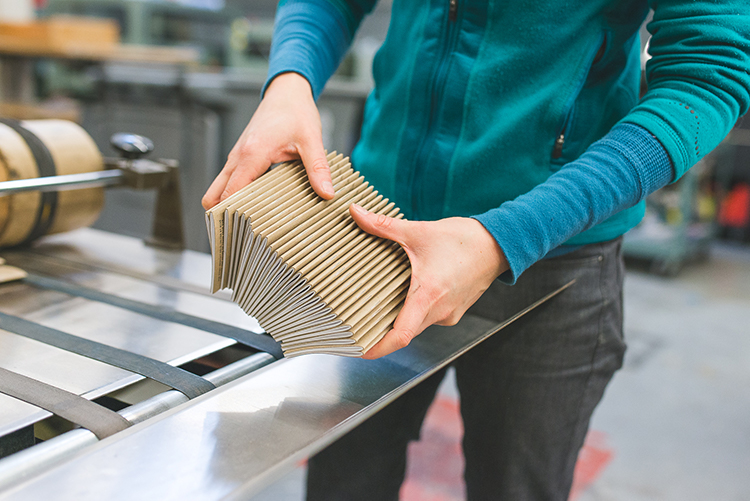
Ali: It’s so true with survey design or just the order that you lay things out in can really affect people’s decision making and how they make their choices.
Chloë: Yeah, totally. I’ll follow up with a link where you can see more about it. It’s really amazing. [Link here and here and here].
Ali: Ok, thanks! [And after having checked out the links, I agree that the project is truly amazing]. So how do you find your customers? Do they find you or do you use social media or advertising?
Chloë: There [are] a few different channels that we use. One is … a good base of loyal repeat customers. As social media has grown, we find that people are tweeting about how they recommend Scout Books for their friends or other businesses. That really spreads the word a lot. I think when we have satisfied customers, that goes a long way. We also try to help sponsor interesting events or conferences, which allows us to travel to other parts of the country, or to the world (we went to Vancouver, BC), and just sort of share Scout Books. If we go to a conference and the conference designed its own custom Scout Book it’s an easy way to connect for people who we are and what we do.
Ali: Okay, awesome. Do you have a lot of demand? Is there any issue with keeping up with demand at the moment?
Chloë: Yes. I would say this kind of ties into one of your other questions, [regarding] the biggest challenge. We’re keeping up with demand. We have a “we never say no” policy, but … recently I feel like [we have] been testing the limits because there’s fifteen of us. There’s about six people that work in production who are literally manufacturing the notebooks, running the presses and the bindery equipment, corner rounding, packing it up, shipping it out. I feel like we’ve had an incredible amount of demand this year, which is awesome, but I think that one of our challenges is figuring out okay, how do we scale up? How do we keep people working a reasonable amount of hours? Do we need more presses? It’s exciting. I think it’s going to be a good year for us.
Ali: It’s exciting. It’s a challenge, but it’s a good problem to have, right?
Chloë: Absolutely, yeah.
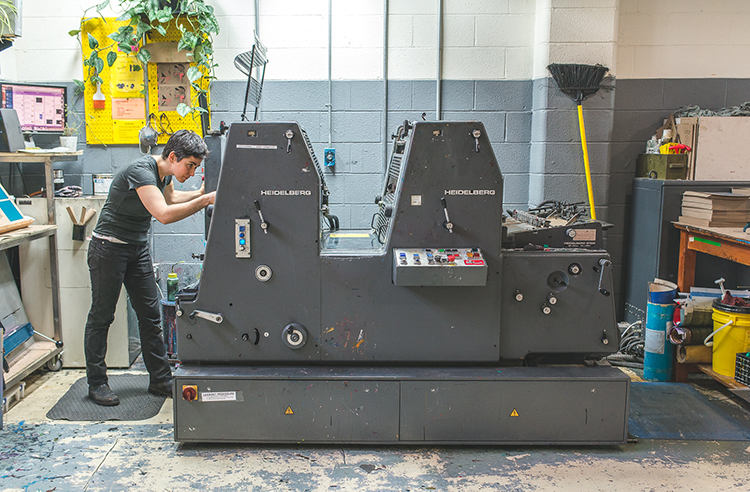
Ali: I was wondering how the ability to use eCommerce, and WooCommerce specifically, has impacted the business of printing custom notebooks?
Chloë: I think that the ability for people to choose options on the Internet is really powerful. If you are sitting in your home in Indiana and you can choose orange ink, black staples, dot grid interior pages, and then have notebooks that are made custom to those specifications, that is really powerful and exciting for people. I think that that helps sell Scout Books. In that way, eCommerce has been huge. How can I think of other ways? I guess just the fluidity of WooCommerce. When somebody goes to our retail side of things and places an order and then the shipping information is shuttled into ShipStation and we get a notification in our e-mail that there’s a new order, and everything then runs fluidly and quickly and we get the order to the person on time. We often ship out an order the day it’s placed and people are just blown away by the speediness of that. I don’t think that that would be possible if we didn’t have the power of WooCommerce.
Ali: That’s awesome. I really, really love what you said about the power of being able to sit in your own home on the other side of the country and create custom notebooks for yourself and then have them delivered.
Chloë: It’s very exciting. Working in marketing it’s so exciting that as our Instagram and Twitter presence have grown, especially on Instagram, people will post a photo as soon as they get the shipment or they open the box and you can really feel that excitement. It’s awesome.
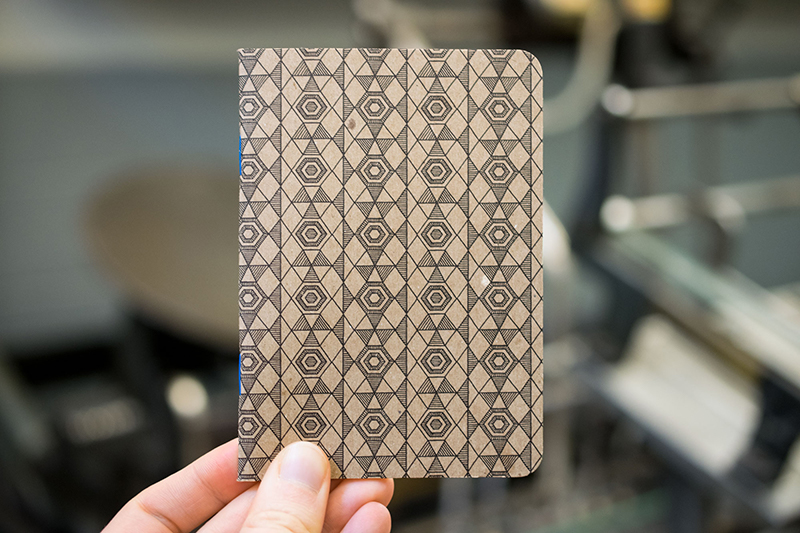
Ali: Have you found there is a difference between selling on Etsy and selling on your own store? Have you moved from Etsy to WooCommerce or back in the other direction or do you use both equally?
Chloë: Yeah, that’s a great question. We primarily use Etsy through Etsy Wholesale. We don’t really have … I don’t know what the alternative to that would be, an independent shop where people can just purchase one notebook. It’s for wholesalers. Like I said, that’s a very small part of our operation. The bulk of our retail items do go out using WooCommerce. It just has been a better fit for us. I love Etsy. I just recently signed us up for Etsy Manufacturing which is a new program that they’re trying, because we’re ninety percent custom and probably ten percent retail. Etsy Manufacturing… is trying to connect manufacturers with Etsy sellers, like people who are maybe hand printing their notebooks, they could work with Scout Books to have an increased scale of production.
Ali: No, that’s fine. You use the tools in the way that they are best for your business. My next question was regarding the social environmental responsibility aspect, which I was really impressed with. At Prospress we really love when we find stories of people doing well while doing good. It’s really great to see. Have you found that that’s influenced your cost structure at all? Is it more or less expensive to produce something like custom notebooks responsibly?
Chloë: I know that it is not less expensive to be sustainable. The ink we buy is mixed here in Portland and it’s soy-based and that ink is more expensive. We also care a lot about being sustainable in terms of our team. I think that people are taken care of. That also affects the price. I guess what we found is that all of those pieces together, even if it impacts the final cost to the customer, that people, once they understand what we’re doing kind of holistically, people are excited and they get behind it. They want to be able to say, “Hey, these custom notebooks that we made come from a hundred per cent recycled paper that was sourced from a mill right by the print shop.” Yeah, so I think it’s valuable.
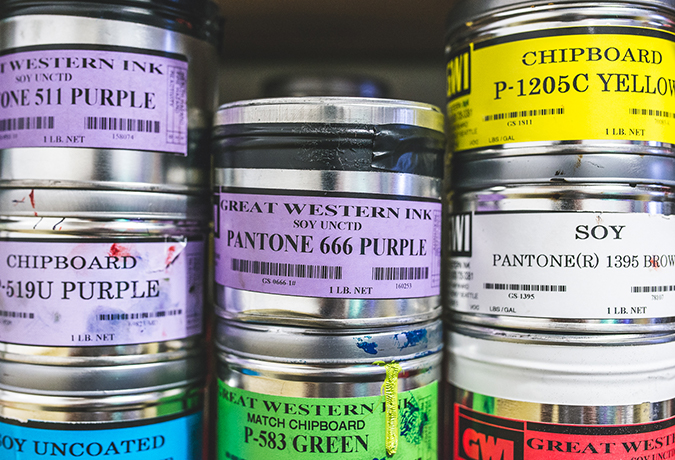
Ali: That’s a probably a deciding factor for a lot of your customers.
Chloë: Definitely. I feel like in the last maybe six months or a year, as we’ve been promoting those things that we do more in social media, that people have actually started incorporating it into their designs. [Sometimes] I’ll see that they maybe have their company logo on the front and on the back it says a hundred per cent recycled, vegetable-based inks, made in Portland. It’s like, cool. They’re excited and proud and want to share that part too.
Ali: Yeah, definitely. They’re advertising the good processes that you’re using.
Chloë: Yeah. Also just a note about sustainability, [and] one of our goals for the next year: we’re investigating becoming B Corp certified. I don’t know if you’re familiar with that program, but it’s a community of businesses that are trying to all stick to some pretty stringent guidelines about employee treatment and materials and, I’m not sure quite the ins and outs of it, but our sustainability director is working on that. We also are trying to work towards planting trees for some of our orders. We’re actually launching a campaign for Earth Day where we worked with an illustrator and we’re going to plant a tree for every single notebook that we produce with her and then we’ll sell them online and she’ll sell them as well.
Ali: Oh, wow. That’s awesome. That’s really cool.
Chloë: Yeah, just to offset … You know, we use paper, so we should be planting more trees.
Ali: I also love that you have a sustainability officer as well, in your team of fifteen people.
Chloë: Yeah, it’s really cool. It’s a fairly new position. It’s all focused on the sustainability of the team. Keeping people happy and healthy, and then also what we do as a shop. Just working towards being more, I believe the term is net positive?
Ali: Yes, perfect. I just have a quick question about your printing process. Your website mentions that it’s hyper-efficient. How does that work?
Chloë: The printing process uses offset lithography, and, like I said, with the vegetable based inks, on a hundred per cent recycled paper, and I think that the piece that is very efficient is that the way that Scout Books were first designed, there are thirty-two pages because that is the maximum use of a parent sheet with the smallest amount of trimming waste, and the same with the covers. They’ve been engineered to have the smallest amount of waste once they’re going through production.
Ali: Okay, cool. That reduces the cost?
Chloë: Yes, I think [it] is helpful that we’re using every last bit of the paper.
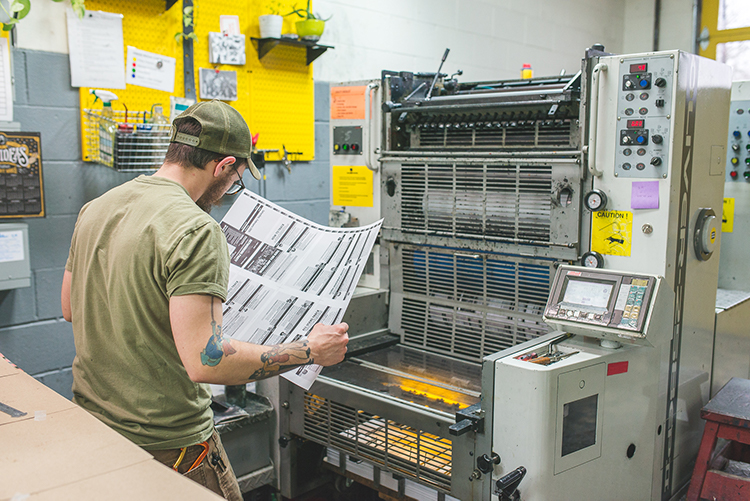
Ali: Do you have anything else about the challenges you’re facing in the business or is that mostly under what we talked about [with respect to] scaling and growing quickly?
Chloë: I think that that is probably the biggest challenge right now.
[Chloë referred the final two questions to one of the founders, Laura Whipple].
Ali: What do you wish someone had told you when you were starting out?
Laura: About two and a half years ago, we started working with an organisation that helps manufacturers implement LEAN business practices. This experience really opened my eyes to the concept of continual improvement and how focusing on small changes to improve value over time can really make a big difference for our customers and for our team. LEAN encourages you to analyse your processes and work everyday to make them better.
The goal is to bring challenges to the surface so that the team can work on resolutions together. I love LEAN’s focus on reducing waste and empowering everyone to be a part of improving the systems. I also love that it is hard on process and soft on people. I wish we had known about these concepts earlier in our journey, and I want to be even better about putting them into practice in the future.
- Remember to exercise! It will make you happier, more creative, and better able to deal with stress.
- Try to focus on the essential and build long term partnerships where you need help. We’ve always tackled so many parts of our business ourselves, and that is simply not sustainable as we get bigger. You have to prioritise.
- Write your big dreams and goals down every year (or even every six months) and revisit them. Post them somewhere visible to remind you of why you are really doing what you do. Dream big, write it down, and start making small changes to make it happen.
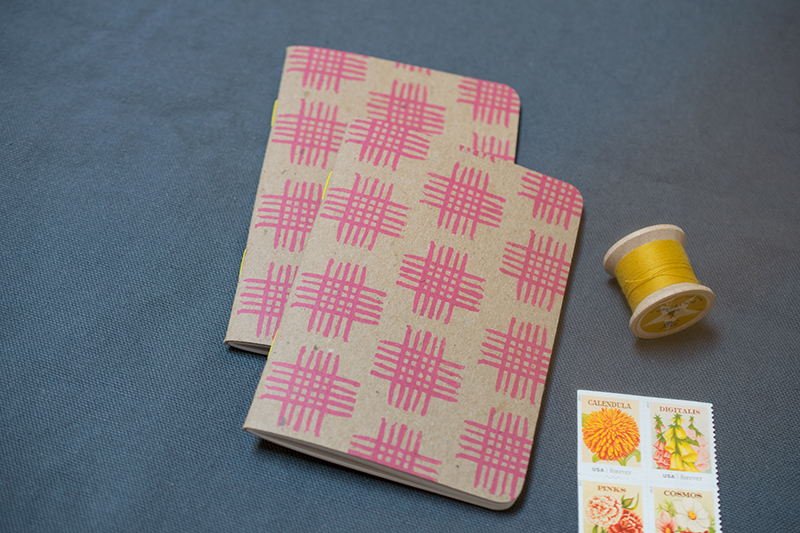
Ali: Do you have any advice for other entrepreneurs?
Laura: Be kind whenever possible. It’s always possible. (My favourite quote from the Dalai Lama).
Instead of reaching for your phone or computer first thing in the morning, try something else, like taking a walk, going for a swim, or drinking your coffee while just daydreaming. It can change your entire day for the better.
Work for win-win-win relationships with your customers, staff and vendors. If the business is going to be sustainable, all stakeholders need to benefit.
Conclusion
It was such an inspiration to learn about what Scout Books is doing. We also appreciate Laura’s perspective as an experienced entrepreneur and for her great advice to those who are just starting out. We love telling these stories in Small Woorld because it contributes to the community of eCommerce entrepreneurs who use WooCommerce. It’s pretty clear that Scout Books is an incredible community member in all senses of the word. And, while talking with Chloë for this interview, I started brainstorming how Prospress can print some custom notebooks with Scout Books. Watch this space!

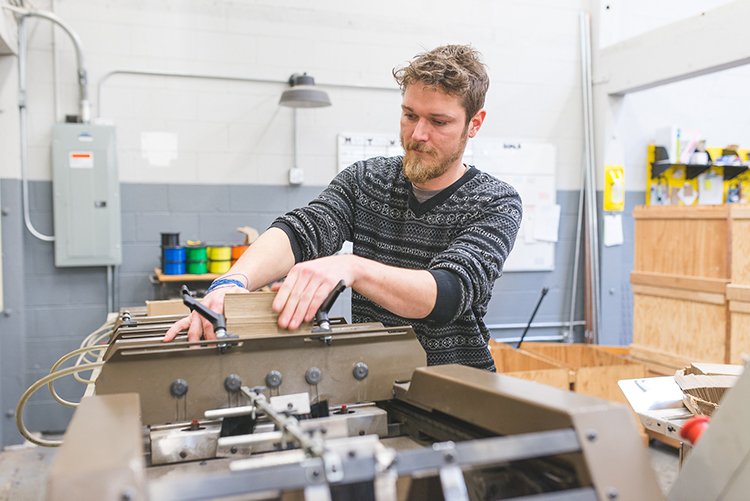
What a super cool business. We definitely need to talk to Scout Books when we start to look at printing the next version of Small Woorld. 😉